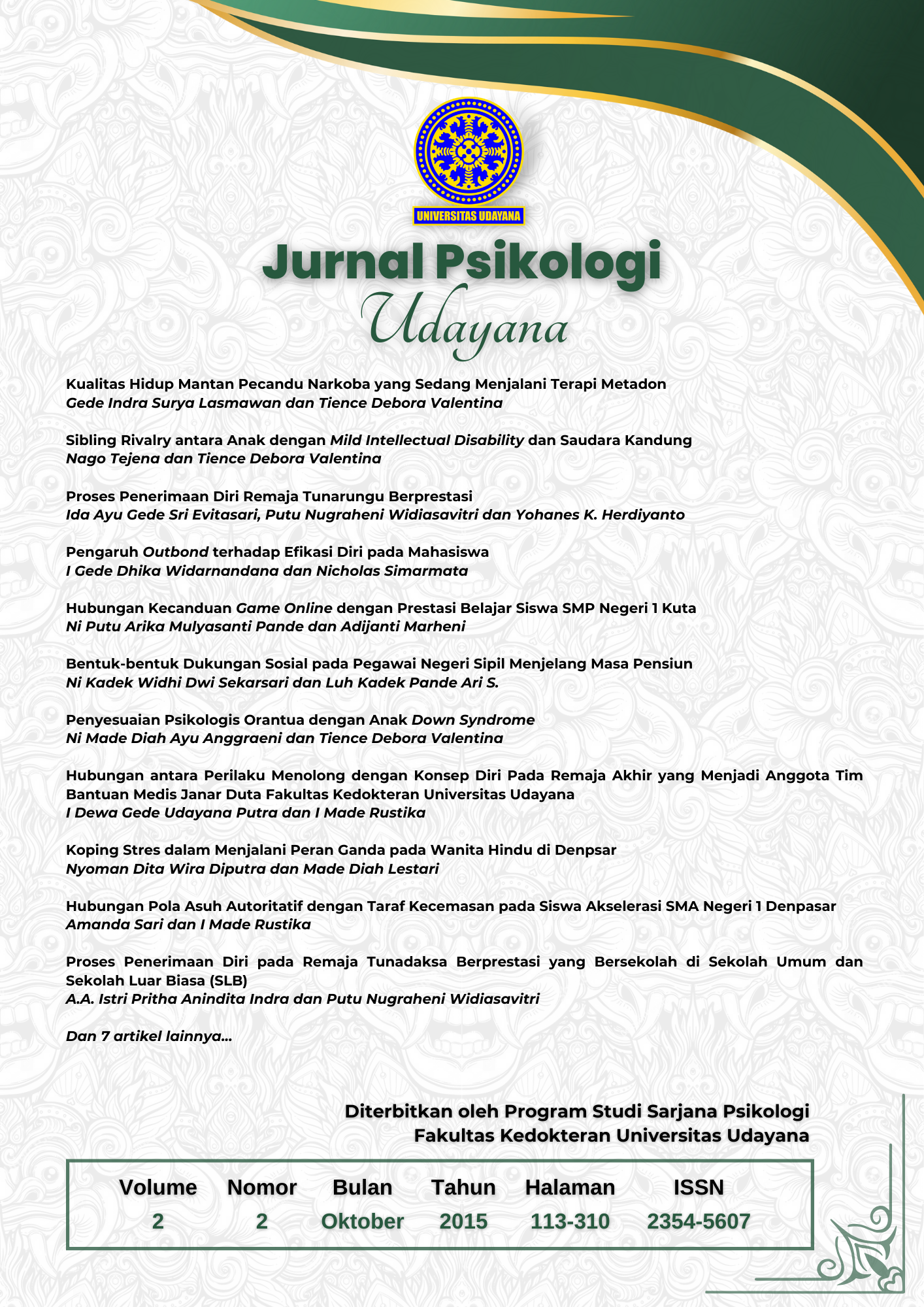PENGARUH OUTBOUND TERHADAP EFIKASI DIRI PADA MAHASISWA
Abstract
Students in their lectures faced on academic and non academic challenge. In academic challenge, such as orientation period, lecture, assignment, mid test, final test, community service and thesis. From non academic challenge, student who join in organization student should be smart to divide their time in campus. Facing the academic and non academic challenge, student must to have toughness in him self to be able face and resolve their lecture as well, student must to have self efficacy. Self efficacy is a judgment one’s ability to organize and execute tasks aims to produce an achievement. Self efficacy can be enchanced through training program, one’s of outdoor training program can be called Outbound. Outbound defined by learning process by interacting through experienced, Outbound is simulation of game in outdoors and have goal to get experience has meaning.
This is quantitave research with analysis Paired Sample T-Test. Data collection by use experiment method, pre-experiment design. Researcher deploy self efficacy pre-test scale and self efficacy post-test scale as many as 20 item, data collection techniques use multistage random sampling. Respondent in this research is student in Udayana University, as many as 30 respondent. Result from this research found probability 0,000 (p)<0,05. This means there Outbound influence in self efficacy student. In addition from analysis regresion amount of success variable can be predicts an increase of self efficacy post-test variabel. Based on that data can be concluded Outbound give influence to increase student self efficacy.
Keyword : Outbound, Self Efficacy, Student, Experiment
Downloads
Authors who publish with this journal agree to the following terms:
- Authors retain copyright and grant the journal right of first publication with the work simultaneously licensed under a Creative Commons Attribution-ShareAlike 4.0 International License that allows others to share the work with an acknowledgement of the works authorship and initial publication in this journal.
- Authors are able to enter into separate, additional contractual arrangements for the non-exclusive distribution of the journals published version of the work (e.g., post it to an institutional repository or publish it in a book), with an acknowledgement of its initial publication in this journal.
- Authors are permitted and encouraged to post their work online (e.g., in institutional repositories or on their website) prior to and during the submission process, as it can lead to productive exchanges, as well as earlier and greater citation of published work (See The Effect of Open Access).













